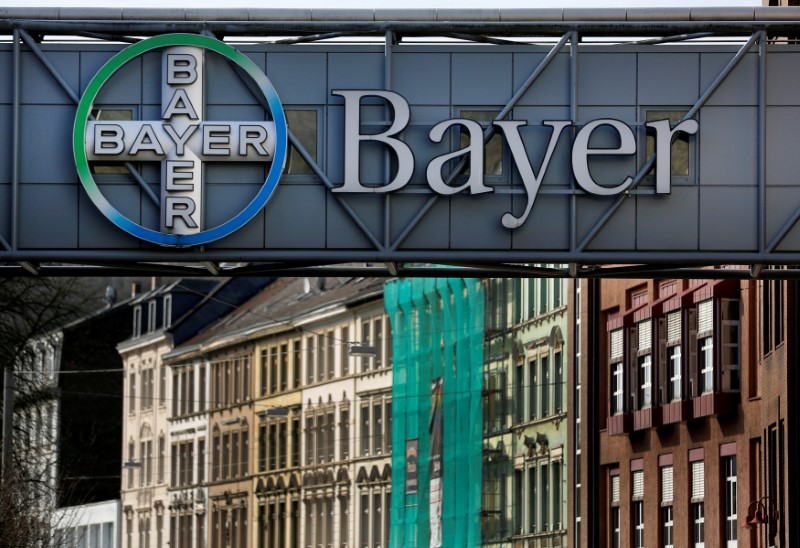By Ludwig Burger
FRANKFURT (Reuters) - Bayer (DE:BAYGn), which is buying U.S. seeds company Monsanto (N:MON), cut its forecast for operating profit growth this year to below 10 percent after declines in sales of consumer health products in the United States and crop chemicals in Brazil.
Sales of sunscreen Coppertone, allergy remedy Claritin and painkiller Aleve, the main brands it bought from Merck & Co (N:MRK) in 2014, each slumped more than 10 percent in the second quarter, mainly hit by fierce competition in the United States.
Bayer shares fell more than 4 percent and were down 2.9 percent at 1105 GMT, underperforming the STOXX Europe 600 Health Care (SXDP) index, which was also being dragged down by a slump in AstraZeneca (L:AZN) following a drug study setback.
Germany's biggest drugmaker said it expected 2017 adjusted earnings before interest, taxes, depreciation and amortisation (EBITDA) to rise by a "high-single-digit percentage", whereas it had previously forecast "low-teens percentage" growth.
"We were negatively surprised by the substantial downgrade to consumer health guidance," Equinet analyst Marietta Miemietz said.
Bayer flagged early this year that some consumer brands were in worse shape than it had appeared during the bidding for the $14 billion (10.65 billion pounds) Merck assets and their performance had been further complicated by consolidation among U.S. drugstore chains.
Bayer warned last month that poor sales at crop protection distributors in Brazil and a weaker than expected consumer health business would hit earnings by at least 300 million euros ($342 million).
Operating earnings at its Crop Science division, which plans to complete the Monsanto merger this year, fell by more than half, hit by 355 million euros in charges from provisions for product returns and writedowns on inventories and receivables in Brazil.
Major rivals in pesticides such as BASF (DE:BASFn) and DuPont (N:DD) have flagged punishing conditions in Brazil.
But unlike Bayer they were not caught out by major surplus volumes in distribution channels, which forced the Bayer division to chalk up negative Latin America sales for the quarter after taking back products from distributors' shelves.
Bayer's adjusted EBITDA for the second quarter came in at 3.06 million euros, slightly higher than last year and the average forecast by analysts, helped by a boost in margins at plastics business Covestro (DE:1COV) and continued growth in prescriptions for anti-clotting drug Xarelto.
Bayer is expected to release long-awaited details on a successful drugs trial that could expand the cardiovascular conditions that Xarelto can treat at the end of August.

($1 = 0.8519 euros)